Cooker Hoods and Extractors
Cookers hoods are a great and effective way of removing both odours and grease from your kitchen environment. With so many extractor designs to choose from it can be difficult to decide what to buy! Our helpful buying guide will take you through all the different options so you can find the best model to suit your needs.
FAQ Questions - How To Choose The Perfect Cooker Hood.
What does a cooker hood do?
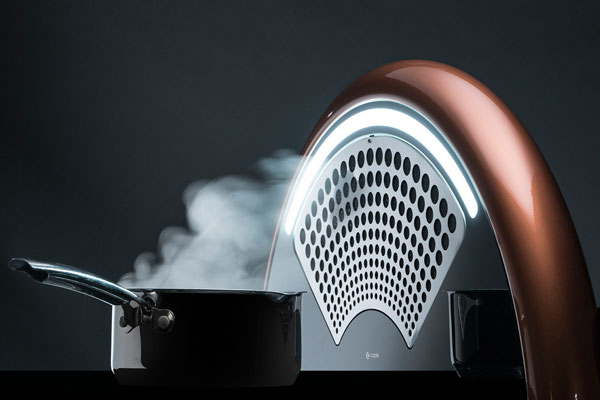
Cooker hoods effectively remove both odours and grease from your kitchen environment. It’s so important for your kitchen to be clean as you cook and prepare your food here. Without a cooker hood problems can arise as kitchens can become damp, steamy and in the worst of cases, develop mould from all these prolonged issues. Thankfully, when used on the correct setting, a cooker hood will help to eliminate these issues.
Do cooker hoods and extractors do the same job?
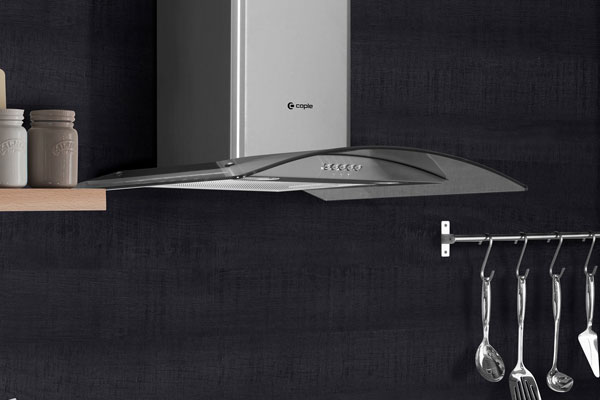
Essentially, cooker hoods and extractors are designed to do the same thing. Both options will filter and clean the air in your kitchen. Generally, the more you spend, the better the extraction rate.
Extractors include ceiling extractors and downdraft extractors. They are both good options if you are limited on space or wish to create a minimalist aesthetic in your kitchen. You'll discover both ducted and re-circulating models are available.
Cooker hoods are also known as chimney hoods. They are wall mounted and come in a wide array of size and design options.
What is the difference between recirculation and ducting out?
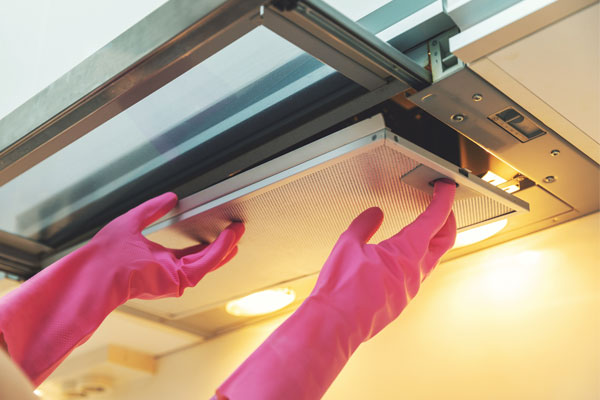
Ducting out simply means steam and odours that pass through your cooker hood are extracted outside, via a ducting hose. You must consider the positioning of joists in your roof as the ducting needs to reach the outside wall in the most efficient way possible. If the ducting has to travel long distances or if the pipework features numerous bends it will affect performance and noise levels will also increase. Ducting out is more efficient than re-circulating, however a re-circulating hood is a still good option if ducting out is not possible.
Re circulating cooker hoods recycle the air, however steam and condensation is not reduced. During recirculation, extraction smells and grease are passed through numerous filters, once filtered, the recycled air goes back into the room. Installing a re-circulating hood is cheaper as you do not need to buy and install ducting. They do require a little more maintenance as the carbon filters need to be changed regularly in order to keep them running effectively.
Island Cooker Hoods
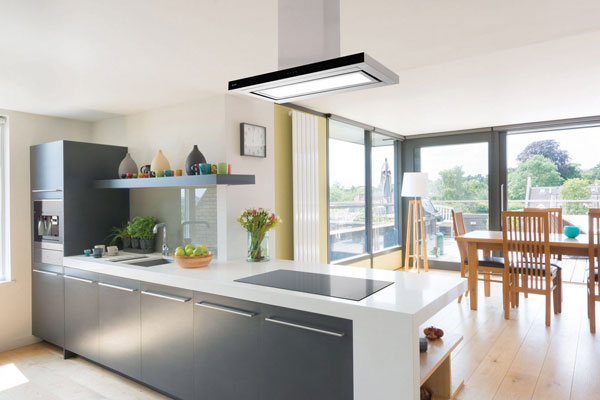
One of the largest and most striking of all cooker hoods are Island Cooker Hoods. There are four extractor types that are suitable for use on an Island unit; Ceiling extractor, island hood, pendant or a downdraft extractor.
Island cooker hoods and pendant hoods hang from your ceiling creating an eye catching centre piece for your kitchen. They can be viewed a full 360 degrees. Pendant hoods look fabulous however, be aware models are only available as recirculating hoods.
Ceiling extractors fit flush to the ceiling, or in some cases a slight step down from the ceiling. They are discreet yet still look impressive, elegant and minimalist.
Downdraft extractors are another discreet extraction choice for use in an island. A downdraft extractor is installed beneath your work surface directly behind or alongside your hob. With the press of a button the extractor will glide up from the work surface ready to work it's magic!
Chimney Hoods
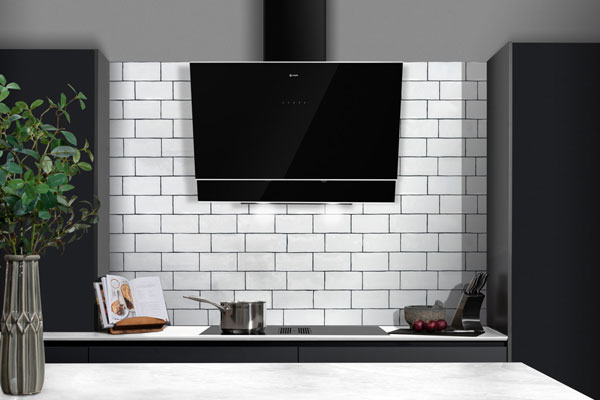
Chimney Hoods are a wall mounted extractor and are usually designed to look like a chimney. Despite this, they can come in a varying selection of styles from traditional to non-traditional. Chimney hoods are often stainless steel however other options such as black and clear glass are becoming increasingly popular. They come complete with features such as speed selection, touch or push controls and remote control.
Built In Cooker Hoods
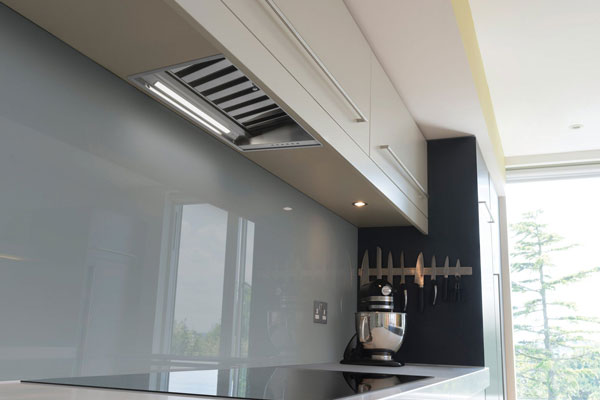
A Built In Cooker Hood is a popular choice for those who wish to disguise their Cooker Hood as part of the kitchen. A kitchen door fascia is mounted to the front of the hood allowing it to blend seamlessly with the rest of your kitchen furniture.
Built in cooker hoods include visor cooker hoods, telescopic cooker hoods and classic integrated extractors. Integrated extractors can be installed within a decorative chimney. They are a very popular choice for use in shaker style and traditional themed kitchens.
Downdraft Extractors
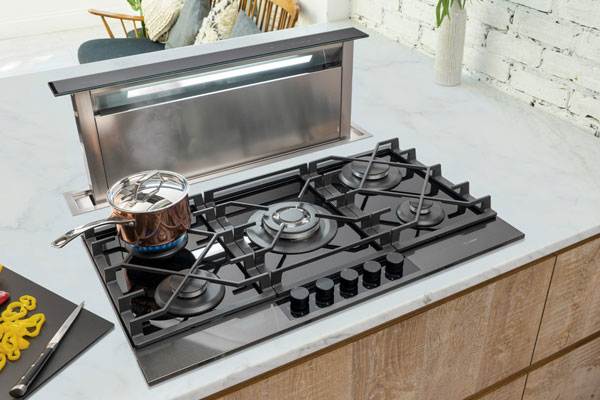
A downdraft extractor is a discreet and minimalist extraction option. The appliance is installed within the work surface either directly behind or alongside a hob. With the press of a button it rises up from the worktop to remove odours during cooking. When not in use, it is hidden from view.
Downdraft extractors are a good choice for installation in an island as the ducting runs along the floor. Venting under the floor makes installation easier.
If you are a keen cook, an over counter extractor ducted to an outside wall would be a better choice. Smoke rises and therefore it is easier to re-direct with an extractor from above.
Ceiling Extractor
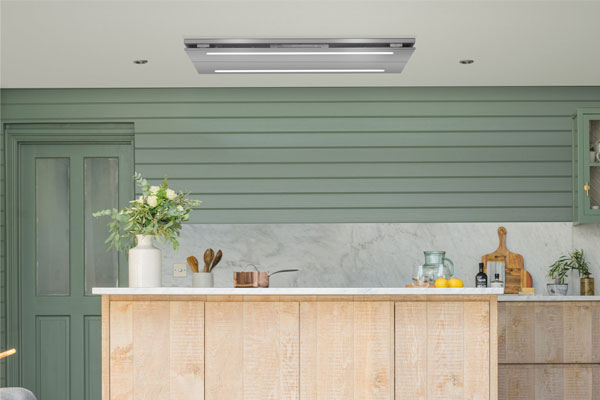
Going one step further to maximize your kitchen space, ceiling cooker hoods are mounted in your ceiling and subsequently kept well out of the way and pretty much out of sight. Sizes range from 900mm to 1100mm wide so they are suitable or all hob sizes.
Many ceiling extractors sit flush to the ceiling or in some cases a slight step down from the ceiling. There's no need to reach for a pair of ladders to operate the appliance! Ceiling extractors are supplied with a handy remote control. A wide array of ceiling extractors offer stylish lighting options too. Some models even come with dimmer options so you can create a lovely ambience in your kitchen. Perfect for relaxing with coffee after dinner.
Ceiling extractors require a motor. Ducting out is always the best option but some models can also be installed as a recirculated hood if required. If opting for recirculation, you would need to purchase carbon filters.





